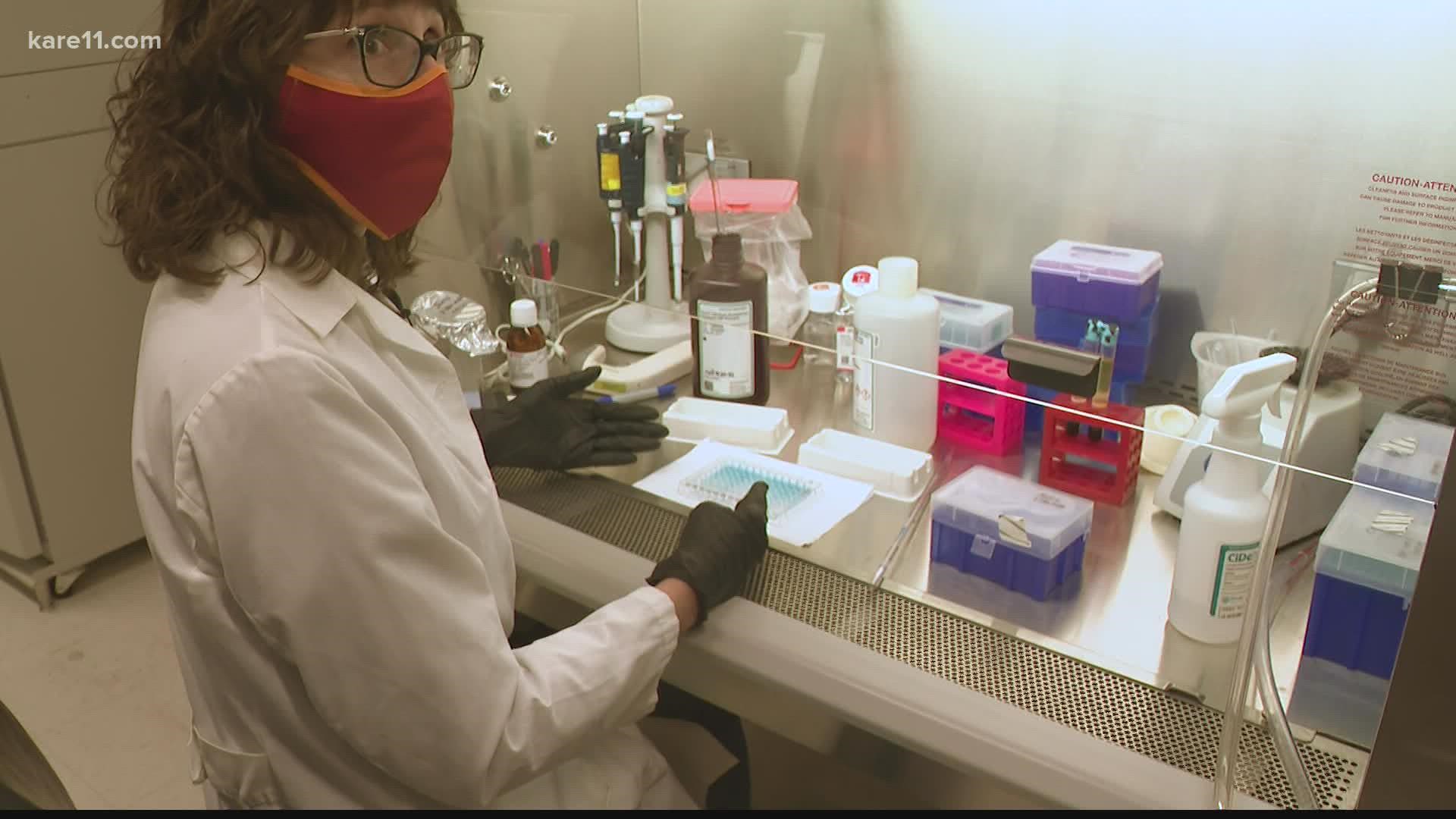MINNEAPOLIS — Researchers at the University of Minnesota are trying to answer major questions of which the world still has no answers: At what point will coronavirus vaccines give long lasting immunity? And unlike most other vaccines, why does the immunity from these go away so quickly?
We got to go inside the U of M’s lab to see what the frontline of COVID research looks like.
“For many other vaccines we have antibodies that last for decades without boosting,” said Marc Jenkins, Ph.D., director of the U of M Center for Immunology. “And so why are these vaccines stimulating antibodies that are disappearing? Like 50 percent of the antibodies disappear in about six weeks.”
To begin finding answers, the lab mimics the human body.
They take blood from humans – some vaccinated, some boosted, some unvaccinated – and they need variants of the SARS-CoV-2 virus.
Instead of using live virus, which is incredibly dangerous, they synthetically make the barb-like arms of different coronavirus variants, known as spike proteins, from scratch.
“These are insect cells making the omicron variant spike protein,” Jenkins said while showing us inside a lab refrigerator.
The batch of omicron spike homebrew takes about a month to get enough they need for testing. It should be ready next week.
“We’d like to move even faster, but we are doing what the technology allows,” said Jenkins.
Senior researcher Kathy Paper performed what’s called an ELISA assay test, that is taking plasma from various people and testing it against spike. It shows how many antibodies a person has that are effective against the virus.
Labs across the world are working on similar experiments, trying to get new insights into this strange disease.
Part of the U’s specialty is on what are known as memory B cells. These cells remember what antibodies work well against the virus and can quickly make more of that antibody should you get infected again.
“The memory B cells are really important for the future, because even if your antibody titer wanes, your memory B cells actually stay at a very high level for a long time,” said Paper.
They are studying how many of these COVID-binding memory cells people have before, right after and long after vaccine.
Jenkins believes it could be a link to answering when and if vaccines can produce long-term immunity for COVID-19.

